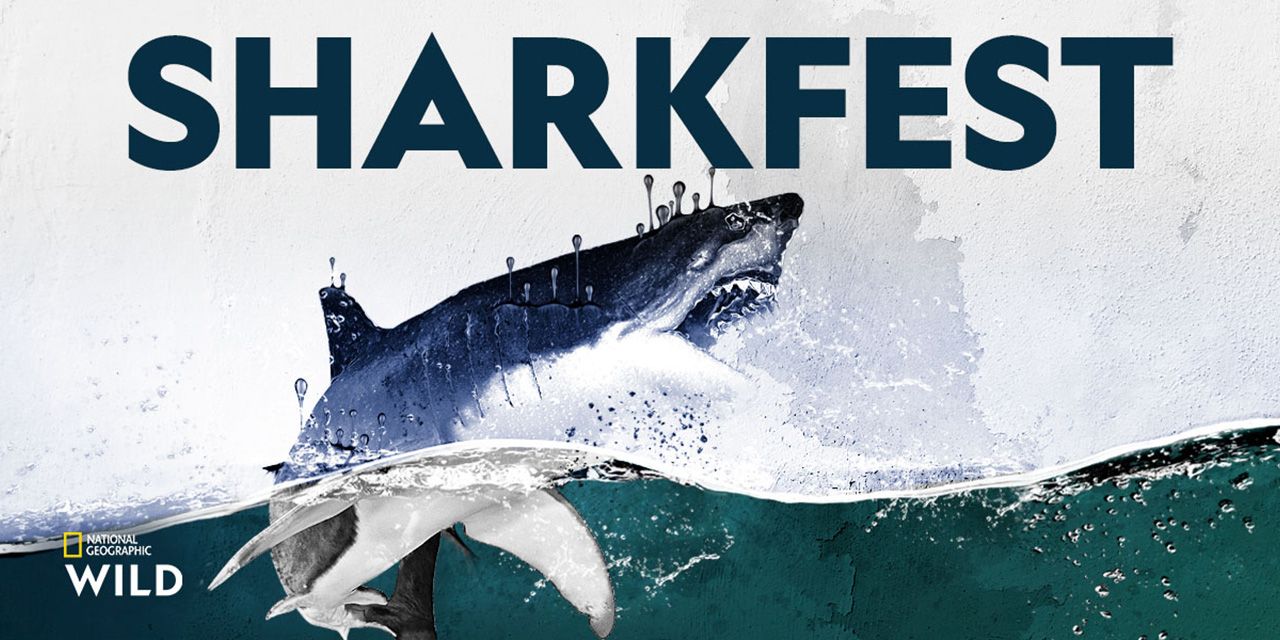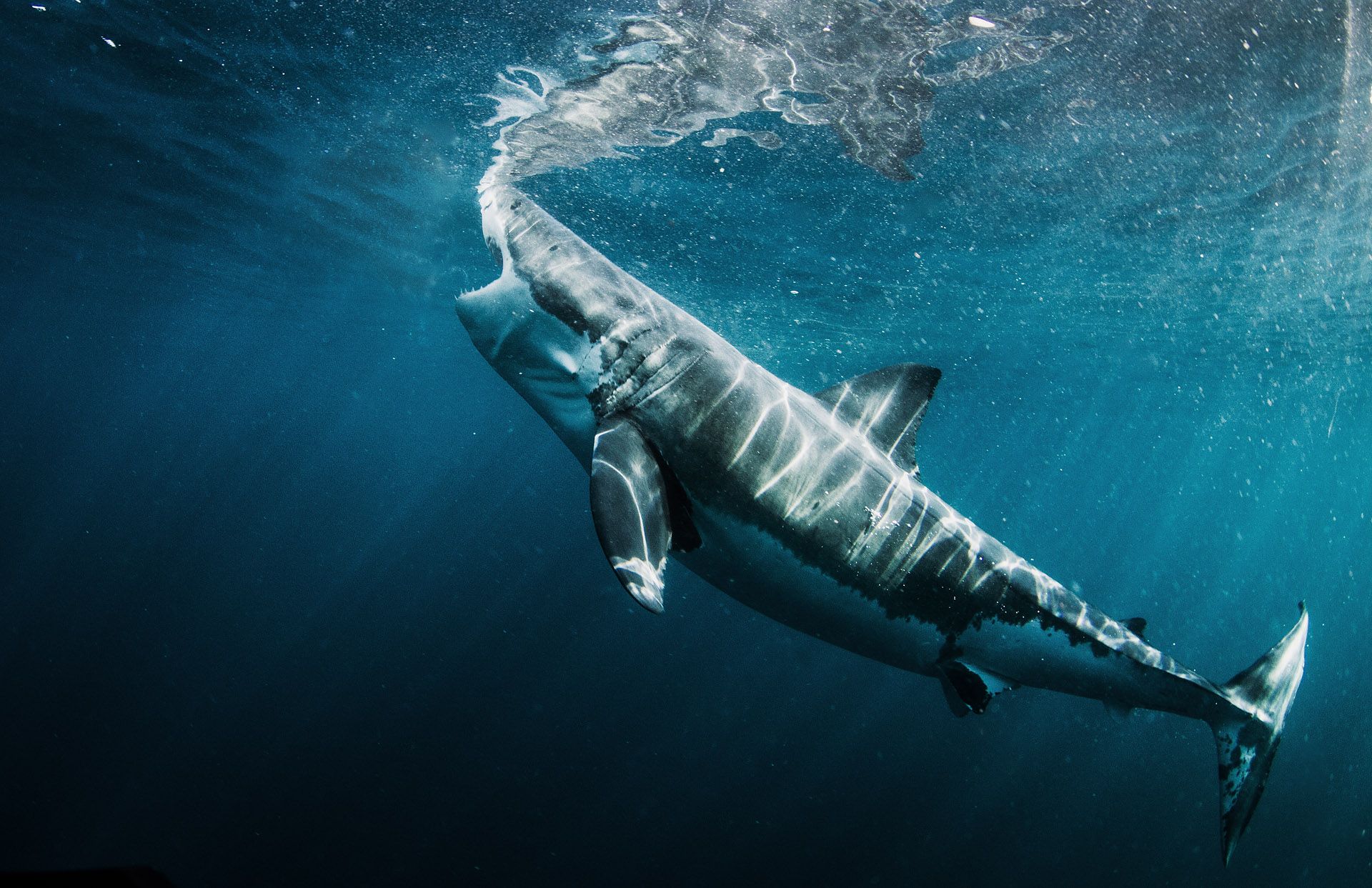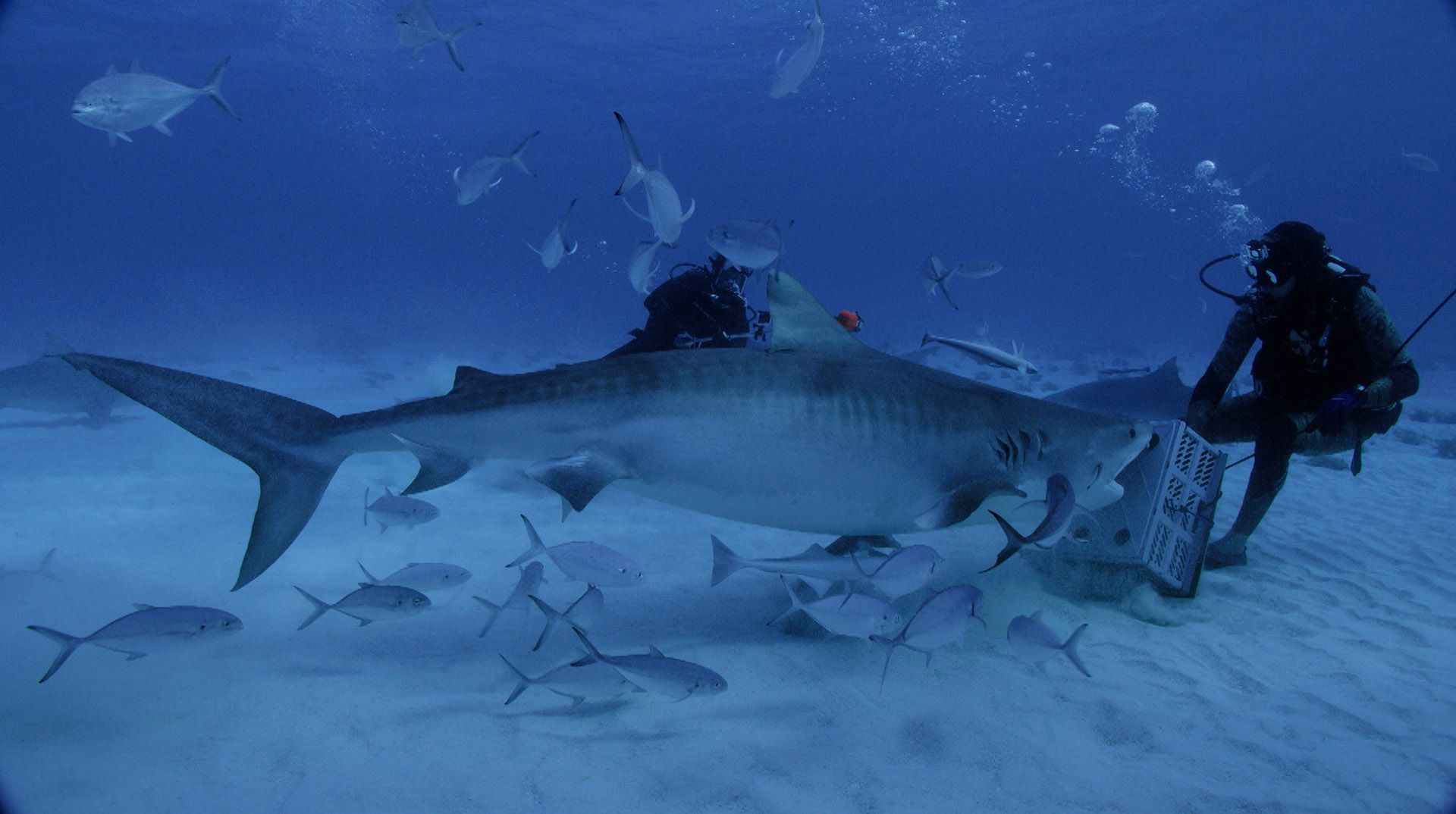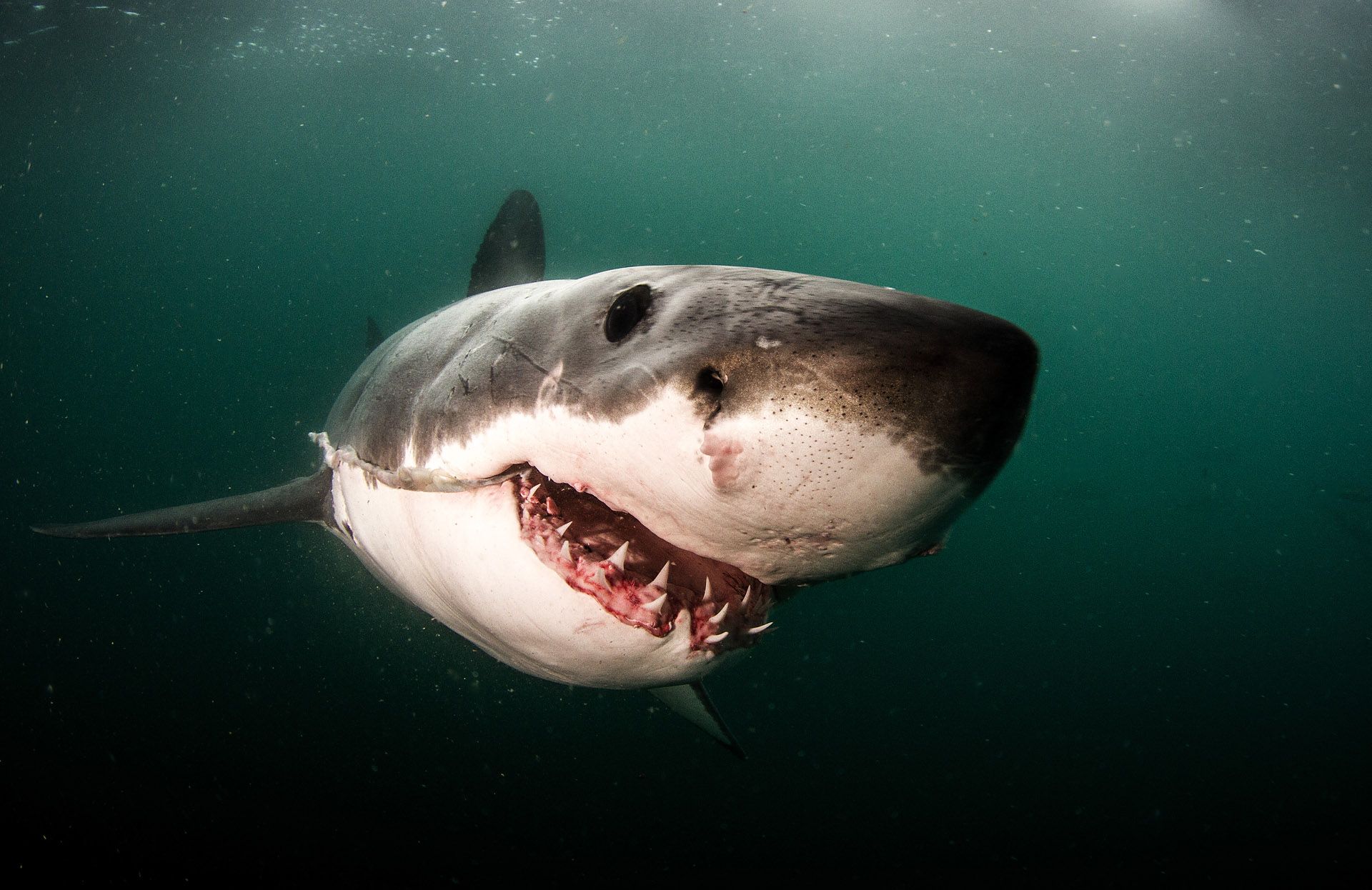The seventh annual SharkFest event is already underway, spanning a full week of programming on the Nat Geo Channel, and followed up by another two weeks on Nat Geo WILD. To celebrate the launch of this event, we traveled to the Long Island Aquarium to dive with sharks and go face-to-face with the most fascinating creatures of the oceans.
We were joined by Dr. Chris Lowe, Professor of Marine Biology and the director of the Shark Lab at California State University. He’s been there 20 years but knew long before that what his passion was. Growing up in Martha’s Vineyard, Lowe fished and swam daily from as early as he can remember. One day when he was 8 or 9 years old, Lowe caught a shark and it made him go to the library to learn more. He found a book on sharks and “that was it,” says Lowe. “That sucked me in.”
Throughout junior high Lowe knew what he wanted to do and devoured every shark book he could find. “A lot of them at the time were really about shark attacks and bad things about sharks. Other than really hardcore scientific books, there weren’t a lot of popular books.” So, Lowe had passion and a habit of researching on his side, and then he found himself in a little film that went on to be the most popular shark feature of all-time, but also one of the most notable pieces of work from legendary director Steven Spielberg.
I was there when they filmed Jaws. A lot of friends and family were in the movie. For me, watching Jaws is like a home film because there were like eight paid actors and the rest were all locals. The two kids in the movie, I went to school with the oldest one. We were in class together and the youngest one went to school with my brother so it was kind of cool being there when it was filmed.
Lowe went on to do 14 years of post-secondary schooling, and while his friends and family would tease him on this, it wasn’t really work or school for the professor-to-be. “I get to go fishing and whether I catch anything or not, I get paid. That seems like a pretty damn good job to me,” says Lowe.
“The shark thing has always been a passion but it’s been really challenging. If you look, go online and search shark researchers you’re not going to find very many of us,” continues Lowe. And the reason is that there’s a lack of funding.
What is the biggest Misconception About Sharks?
The biggest misconception about sharks is that despite all the popularity there’s no funding to study them. There’s just no funding... Everybody wants to know about them but nobody wants to pay for it.
That's a unique perspective given that the usual answer regarding sharks is the problem of how they are generally represented in entertainment media, including in the very movie Lowe worked on: Jaws. From that movie's sequels to The Meg, and even the goofy Sharknado movies, Sharks are generally vilified and positioned as monsters of the sea when really, they're just another fish.
According the University of Florida's Florida Museum there were only 66 confirmed unprovoked attacks by sharks in 2018 worldwide. Hippos, mosquitoes and even dogs cause substantially more human deaths per year by comparison.
Why Are People So Fascinated With Sharks?
Sharks are everywhere in media and alongside Nat Geo's SharkFest event, the Discovery Channel has Shark Week annually as well. Why are people so interested in sharks? Dr. Lowe wrestles with this topic constantly.
That’s a really interesting question I spend a lot of time thinking about. I think it comes back to fear factory. Evolutionarily, we are programmed to pay attention to things that could harm us and the thing about sharks is that we’re not aquatic. We’ve invaded the ocean. And we’re very susceptible to information we get from other sources. Humans are one of the few animals that communicate information to each other that can warn you about something that you can encounter and if I give you an accurate enough depiction of what that is, when you encounter it – even though you’ve never encountered it before – you’ll remember the story. And you will know that that is something potentially dangerous. Our brains are programmed to want that information and we get a little shot of dopamine because we’re a little scared by it and that reinforces the learning. You listen, you pay attention.
The other part of the story comes back to the people who tell the stories. There has to be a reinforcement for that. And the reinforcement for them is people listening. If you tell a scary story, and you’re good at it, you can tell that story. Now where it gets tricky is, the only way the story works is if the person who’s going to encounter this has a very low likelihood of encountering it because if they tell you a story that “this thing has gnawing teeth” and you go in the water and you see it and it’s just swimming around ignoring you, those things don’t match.
So that’s why I think people are interested in sharks – because they don’t know enough about them yet.
What Should People Learn and Take Away From SharkFest Programming?
"What I think they're going to see are the sharks that I see," explains Lowe who prides himself on working with Nat Geo for their focus on accuracy, facts, and educating while entertaining.
They're going to see sharks do what sharks do in their natural environment. You're not cherry picking the scariest things to show. You're showing sharks doing what sharks normally do.
Lowe explains that people learn about sharks through stories, seeing them in aquariums, and such, and when you see them in the wild viewers will stop and think. "That's what changes hearts and minds," Lowe reiterated while raising that Nat Geo's programming is the type he's interested in, the type that gives people "hope" as opposed the generally negative coverage or scary stories the news picks up.
Exciting developments and The Future of Shark Research
A big focus of Lowe's passion is on educating kids, and after getting past the basics, digging into what makes different types of sharks unique and special. Starting them young, and developing programs for schools, is key to better positioning them to be more aware and involved in the environment and wildlife.
Some shark populations are increasing and the waters, however slightly, are getting better so there’s hope for the environment. And through education, this hopefully will improve says Lowe. As for the research and field work, there are amazing new developments that allow for research and some of what you'll see during Shark Fest.
That's the great thing about the footage. It's absolutely gorgeous. As a biologist, quite often we have to live through other people's unique opportunities and with the technology growing so fast - I mean, the little GoPros people are shooting with, 4K video and you can take a screen grab from that and there's a lot of science we can extract from that. We can identify individuals because all White Sharks have unique markings on their body - unique grey and white markings on their face, their gills, their tail. We're developing facial recognition software where you'll be able to dump a video into this software and it'll go through and try to tell you which one it is.
Lowe's team also uses submersibles, drones and other related tech as well for studying sharks in the wild.
We have autonomous underwater vehicles. We have aerial drones that have become a really powerful tool, especially close to shore. We use this exploding cadre of technology. We now have camera tags that we can put on sharks that gives us the shark POV. It’s got a 3D accelerometer – pretty much everything in your cell phone.
They also have something akin to Fitbits that allow tracking of all the movements the sharks make. Like the cameras, these are designed to pop off by themselves for retrieval. And as for what's next, Dr. Lowe’s own lab in Long Beach just got a $4 million grant to expand its white shark research operations and education program. They've already hired 15 staff and the focus on beach safety.
Fun fact: Sharks are keeping people safer on beaches by eating stingrays.
SharkFest premiered on Nat Geo Sunday, July 14 with a full week of programming and continues for another two weeks on Nat Geo WILD, beginning Sunday, July 21.
World’s Biggest Great White? - the one-hour special which sees the return of the world's largest great white shark ever filmed - will be simulcast on both Nat Geo and Nat Geo WILD Sunday, July 21, at 8/7c.




